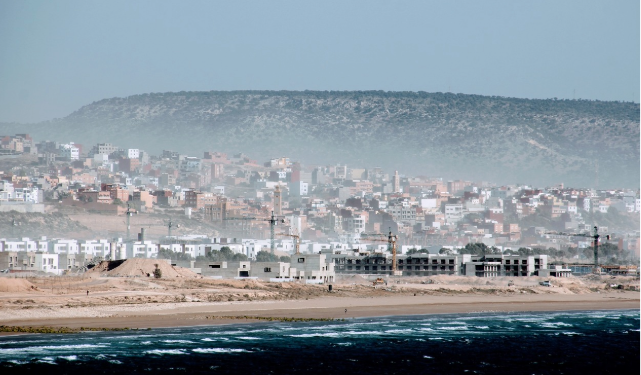Exploring Morocco’s Strategic Role in African Atlantic Coast Development – Morocco’s Atlantic coast is not just a geographical marker but a significant geostrategic axis pivotal for both the Kingdom and the entire African continent. Its strategic location at the crossroads of key maritime routes connecting Europe, Africa, and the Americas positions it as a central hub in global trade dynamics. Recognizing this, Morocco has launched comprehensive policies aimed at reinforcing its status as a regional economic and logistics hub, transforming its ports into international trade and logistics powerhouses.
Annually, the significance of Morocco’s Atlantic coast is showcased at the MD Sahara Forum, hosted by Maroc Diplomatique. This premier event gathers experts, policymakers, and influential figures in regional and international development to discuss the opportunities and challenges presented by the African Atlantic coast. It emphasizes Morocco’s critical role in fostering transcontinental development, aligned with the strategic vision of His Majesty King Mohammed VI. The vision seeks to convert this extensive maritime area into a prosperity corridor that serves as a bridge across continents, promoting trade, investment, and sustainable development on an international scale.
This strategic vision is further amplified by prominent figures such as Omar Hilale, Morocco’s Permanent Representative to the UN. His contributions articulate how Moroccan initiatives not only bolster the country’s own development but also catalyze growth throughout Africa. These initiatives enhance regional cooperation and support African integration and socioeconomic development.
Morocco as a Geostrategic Pivot Between Continents
Morocco’s unique geostrategic location, with nearly 3,000 kilometers of Atlantic coastline, is a boon for its ambitions to become a leading global economic and logistics hub. Significant investments in infrastructure, like the Tanger Med port, and groundbreaking projects such as the Dakhla port development, highlight Morocco’s proactive approach. The Dakhla port, situated further south along the Atlantic coast, is intended to be a major contributor to Morocco’s strategy for African integration. This port not only aims to boost the local economy through job creation and foreign investments but also serves as a vital access point for the landlocked Sahel countries, facilitating broader market access and contributing to the economic opening of these regions.
The strategic importance of Dakhla extends to transforming it into a hub for fishing, trade, and tourism, featuring modern technology and sustainable practices that reflect Morocco’s commitment to environmental stewardship and sustainable development.
Role of Security in Morocco’s Atlantic Strategy
Security is a cornerstone of Morocco’s strategy for its Atlantic coast. The nation has bolstered its maritime security to create a stable zone essential for protecting national and regional interests. The strengthening of the Moroccan national navy and implementation of security measures like maritime surveillance and regional cooperation combat threats such as terrorism and piracy. These measures not only enhance regional stability but also increase investor confidence, which is crucial for attracting the investment needed to support infrastructure development and economic growth in Africa. By securing its maritime routes, Morocco protects its economic interests and contributes to a more stable and integrated African region.
Conclusion: Morocco’s Vision for a Pan-African Future
Under the leadership of His Majesty King Mohammed VI, Morocco’s strategy for its Atlantic coast transcends national ambitions, positioning the country as a leader in promoting African integration and South-South cooperation. Initiatives like the Morocco-Nigeria gas pipeline and significant port infrastructure upgrades are part of Morocco’s broader strategy to not only meet regional economic and security challenges but also to promote a cohesive and prosperous African future.
The MD Sahara Forum highlights these strategic efforts, positioning the African Atlantic coast as a catalyst for continental development and stability. Morocco’s proactive stance in developing its Atlantic coast is a testament to its role as a bridge between continents, fostering sustainable and inclusive growth across Africa.
Through ambitious development and security initiatives, Morocco continues to demonstrate its capability and commitment to leading growth in the region, ensuring that the African Atlantic coast remains a central player in the global geopolitical landscape.
Exploring Morocco’s Strategic Role in African Atlantic Coast Development









